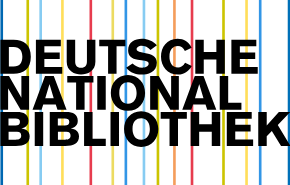THE POSITION OF UZBEKISTAN IN INTERNATIONAL RANKINGS ON INCLUSIVE ECONOMIC DEVELOPMENT
DOI:
https://doi.org/10.55640/Keywords:
Uzbekistan; inclusive economic development; international rankings; Human Development Index; Social Progress Index; Corruption Perceptions Index; Gender Inequality Index; institutional reform; economic growth; global benchmarking.Abstract
Background: As global attention increasingly shifts toward inclusive economic development, countries are evaluated not just by their growth rates, but by how equitably prosperity is distributed. Uzbekistan, a country undergoing significant reforms, has made notable advances in economic liberalization, social policy, and institutional transparency over the past several years.
Objective: This paper analyzes Uzbekistan’s position in major international rankings focused on inclusive development, highlighting achievements and ongoing challenges.
Methods: The study employs a comparative review of Uzbekistan’s standings in indices such as the Human Development Index, Social Progress Index, Gender Inequality Index, Corruption Perceptions Index, and Inclusive Development Index, utilizing data from 2019 to 2024 and referencing both global and regional sources.
Results: Uzbekistan’s performance reveals consistent gains in human development and social progress, yet persistent weaknesses in governance, gender equality, and institutional accountability. While progress in some rankings outpaces regional peers, substantial gaps remain compared to global leaders.
Conclusion: Uzbekistan’s path toward inclusive development is marked by both progress and complexity. Ongoing reforms and alignment with international best practices are critical for ensuring broad-based prosperity and greater equity in the years ahead.
References
1.United Nations Development Programme (UNDP). Human Development Report 2023. New York: UNDP; 2023. Available from: https://hdr.undp.org
2.Social Progress Imperative. Social Progress Index 2023. Washington, DC: Social Progress Imperative; 2023. Available from: https://www.socialprogress.org
3.Transparency International. Corruption Perceptions Index 2024. Berlin: Transparency International; 2024. Available from: https://www.transparency.org/en/cpi/2024
4.World Economic Forum (WEF). The Inclusive Development Index 2020 Summary and Data Highlights. Geneva: WEF; 2020. Available from: https://www.weforum.org/reports/the-inclusive-development-index-2020/
5.Asian Development Bank (ADB). Uzbekistan: Economy. Manila: ADB; 2023. Available from: https://www.adb.org/countries/uzbekistan/economy
6.Organisation for Economic Co-operation and Development (OECD). OECD Reviews of Evaluation and Assessment in Education: Uzbekistan 2023. Paris: OECD Publishing; 2023. Available from: https://www.oecd.org/uzbekistan/
7.Sustainable Development Solutions Network (SDSN). Sustainable Development Report 2024. Cambridge: Cambridge University Press; 2024. Available from: https://dashboards.sdgindex.org/profiles/uzbekistan
8.World Bank. Uzbekistan Overview. Washington, DC: World Bank; 2024. Available from: https://www.worldbank.org/en/country/uzbekistan/overview
Downloads
Published
Versions
- 2025-06-30 (2)
- 2025-06-30 (1)
Issue
Section
License

This work is licensed under a Creative Commons Attribution 4.0 International License.
Authors retain the copyright of their manuscripts, and all Open Access articles are disseminated under the terms of the Creative Commons Attribution License 4.0 (CC-BY), which licenses unrestricted use, distribution, and reproduction in any medium, provided that the original work is appropriately cited. The use of general descriptive names, trade names, trademarks, and so forth in this publication, even if not specifically identified, does not imply that these names are not protected by the relevant laws and regulations.







